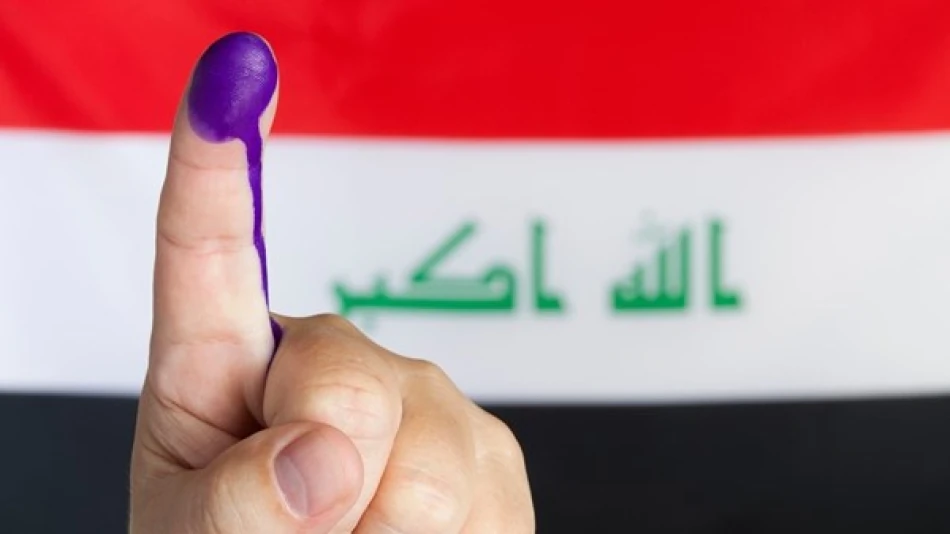
Iraq Denies Postponing Parliamentary Elections: Authorities Confirm Elections to Proceed as Scheduled
Iraq's Election Commission Fights Disinformation Ahead of Critical November Parliamentary Vote
Iraq's High Electoral Commission has forcefully denied circulating rumors about postponing the country's parliamentary elections scheduled for November 11, as the nation prepares for a pivotal democratic exercise involving 30 million eligible voters. The commission's pushback against disinformation campaigns highlights the fragile nature of Iraq's democratic institutions and the ongoing challenges facing electoral credibility in the post-Saddam era.
Commission Stands Firm Against Postponement Rumors
Emad Jamil, head of the Electoral Commission's media team, issued a categorical denial of postponement speculation circulating across traditional media and social platforms. "We deny what is being circulated in some media outlets and social media sites regarding any intention to postpone the date of the parliamentary elections," Jamil stated, emphasizing that technical and logistical preparations are proceeding at full pace.
The commission's swift response underscores the sensitivity surrounding electoral timing in Iraq, where previous delays have eroded public confidence and created political instability. The November 11 date represents a constitutional and legal commitment that the commission appears determined to honor despite ongoing security and administrative challenges.
The Stakes Behind Electoral Integrity
Voter Registration and Participation
With approximately 30 million Iraqis eligible to vote following updated voter registration records, this election represents one of the largest democratic exercises in the Middle East. The scale of participation will serve as a crucial indicator of public faith in Iraq's democratic institutions, particularly after years of political fragmentation and economic hardship.
Combating Disinformation in a Digital Age
The commission's emphasis on official sources reflects a broader regional trend where electoral authorities must actively counter false narratives spread through social media. Unlike established democracies with robust media literacy, Iraq's information ecosystem remains vulnerable to manipulation by both domestic and foreign actors seeking to undermine democratic processes.
This challenge mirrors similar struggles in other transitional democracies, but Iraq's sectarian divisions and external interference make it particularly susceptible to destabilizing rumors about electoral legitimacy.
Regional Context and Democratic Consolidation
Iraq's commitment to maintaining its electoral schedule stands in stark contrast to other Middle Eastern nations where democratic processes have stalled or regressed. The country's determination to proceed with elections despite security concerns and economic pressures signals an institutional maturity that could influence broader regional democratic trends.
The commission's promise of "integrity, transparency, and equal opportunities for all candidates and political forces" represents an ambitious standard in a region where such commitments often remain rhetorical. Success in delivering credible elections could position Iraq as a democratic anchor in an increasingly authoritarian neighborhood.
Political and Economic Implications
The election's timing carries significant implications for Iraq's political stability and economic recovery. Any postponement would likely trigger constitutional crises and further erode investor confidence in a country already struggling with oil dependency and reconstruction needs.
For international observers and regional partners, Iraq's ability to conduct timely, credible elections serves as a litmus test for the country's long-term viability as a stable democracy. The stakes extend beyond domestic politics to encompass regional security architecture and international counter-terrorism cooperation.
The commission's firm stance against postponement rumors suggests recognition that electoral credibility, once damaged, proves difficult to restore. With preparations advancing and legal frameworks in place, Iraq appears committed to proving that democratic institutions can function effectively even amid persistent challenges.
Most Viewed News

 Layla Al Mansoori
Layla Al Mansoori






